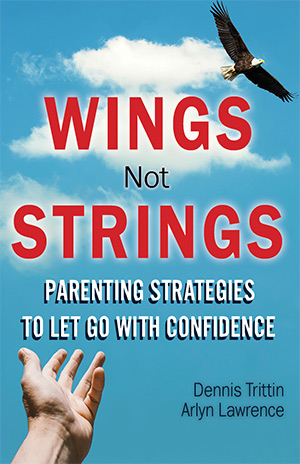3 Tips for Conquering Conflict
7/3/2017 7:02:45 PM
Question: What do the Montagues and Capulets have in common with convincing a five-year old to eat her brussels sprouts? Answer: Conflict! We can all relate to this on some level, right? Whether it’s conflict with a boss, coworker, spouse, child, friend, parent, teacher, or even a next door neighbor, the fact is conflict is a part of life! We aren’t going to always see eye-to-eye with everyone. What matters is what we do (and how we react) when conflict arises.
We invite you to use this article as an opportunity to perform a self-check. How do you rate on your levels of self control, understanding, and respectfulness when conflict arises in your life? What can you do to better handle conflict with others?
Here are three tips to help you manage conflict:
- Respect yourself and your right to be heard. Whether it’s peer pressure, a challenge to your rights, personal safety, or position, it’s important to stand up for yourself. Sometimes, we allow others to intimidate or dominate us out of fear or insecurity. Also, certain personality types (especially the “S’s” in the DISC model) are so focused on “keeping the peace” that they risk being taken advantage of, especially by people with dominant personalities. Although conflict is uncomfortable, we must respect ourselves in the process while being respectful to the other party. Don’t ever sacrifice your well-being or comfort for the sake of someone else. You deserve to be heard just as much as the other party.
- Strive to be an agreeable disagreer. So often, conflicts arise from misunderstandings that could have been prevented or at least controlled. Sometimes they’re based on different philosophical views or perspectives where there isn’t a right or wrong answer. (This is especially true when it comes to talking politics. The current political climate is pretty tense, and conflict is high—both on social media and in real life.) We may want the same outcome as others with whom we disagree, but simply have different strategies to get there. Always strive for mutual understanding, while being attentive to your tone and body language, but agree to disagree if that’s the case. Don’t let the sun go down on your anger. Consider having a heartfelt retroactive talk about it once things have calmed, and vow to do better next time if it didn’t go as smoothly as you’d have liked. And, remember that barking, yelling, and name calling won’t change anyone’s mind, anyway. Instead, it usually emboldens.
Finally, if you’re in a heated conversation and your emotions are bubbling, try using this phrase: “I have a different perspective.” If the other party is disrespectful after that, simply suggest a follow up conversation at another time and move on. - Choose reconciliation over grudges wherever possible. We’ve all been victims of a wrong or a mistake. It causes anger, shame, resentment, depression, and worse. However, when we harbor grudges and refuse to forgive, it can be like an all-consuming cancer. Strive for reconciliation whenever possible and don’t hesitate to seek support. Holding a grudge and/or refusing to ever speak to someone again will not make you feel better—it will feel like a burden that just won’t go away.
The ability to manage conflict is a hallmark of a true leader and a symbol of integrity and maturity. What is your favorite tip for handling conflict? Do you have any life lessons from past experiences you’d like to share?
Tagged as: conflict, relationships, communication, life skills, managing conflict, conflict resolution, teens, friendship, family, parenting, character



















